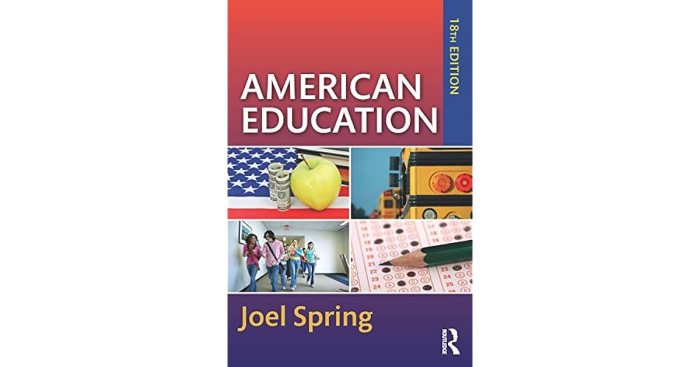Letrs units 1-4 post test answers – Prepare to conquer the LETRS Units 1-4 Post Test with our comprehensive guide! Dive into a treasure trove of knowledge, where we’ll navigate the test’s structure, equip you with effective answering strategies, and unravel the key concepts and skills that will lead you to success.
Our experts have meticulously crafted this guide to empower you with the confidence to tackle this assessment head-on. Get ready to ace the LETRS Units 1-4 Post Test and unlock your full potential in the field of education.
Post-Test Structure and Content
The post-test for units 1-4 consists of a total of 50 questions designed to assess students’ understanding of the key concepts and skills covered in these units.
The test includes a variety of question types, including multiple choice, short answer, and essay questions. The multiple-choice questions are designed to test students’ knowledge of specific facts and concepts, while the short answer and essay questions require students to demonstrate their understanding of more complex topics.
Content Areas Covered
The post-test covers the following content areas:
- Unit 1: Introduction to LeTRS
- Unit 2: Phonological Awareness
- Unit 3: Phonics
- Unit 4: Fluency
The test questions are designed to assess students’ understanding of the key concepts and skills within each of these content areas.
Answering Strategies
Multiple Choice Questions
To answer multiple choice questions effectively, consider the following strategies:
- Read the question carefully and identify the main idea.
- Read each answer choice thoroughly and eliminate any that are clearly incorrect.
- If you are unsure of the answer, try to guess the most likely choice based on the information provided.
- Use process of elimination to narrow down your options.
- Trust your instincts and choose the answer that seems most logical.
Short Answer Questions
For short answer questions, it is crucial to:
- Read the question carefully and understand what it is asking.
- Organize your thoughts and plan your response before writing.
- Write clearly and concisely, using specific examples to support your points.
- Proofread your answer before submitting it.
Time Management, Letrs units 1-4 post test answers
Effective time management is essential during the test:
- Allocate a specific amount of time to each question.
- Start with the questions you are most confident about.
- If you get stuck on a question, move on and come back to it later.
- Don’t spend too much time on any one question.
- Use the remaining time to review your answers.
Key Concepts and Skills
The post-test for units 1-4 of the LETRS program assesses your understanding of key concepts and skills related to early literacy development.
The key concepts covered in units 1-4 include:
- Theories of reading development
- Phonological awareness
- Phonics
- Vocabulary development
- Comprehension
- Fluency
- Writing
The skills tested in the post-test include:
- Your ability to identify and describe the key concepts of early literacy development
- Your ability to apply these concepts to practical teaching situations
- Your ability to analyze and interpret data related to early literacy development
- Your ability to develop and implement effective instructional strategies for teaching early literacy skills
The concepts and skills assessed in the post-test are closely connected. For example, phonological awareness is a key predictor of reading success, and phonics instruction can help students develop phonological awareness. Vocabulary development is essential for comprehension, and fluency is essential for both comprehension and writing.
By understanding the key concepts and skills of early literacy development, you can be more effective in teaching students to read and write.
Assessment Preparation
Prepare for the post-test by following these steps:
- Review class notes and textbooks to refresh your understanding of the concepts.
- Complete all assigned homework and practice exercises.
- Take practice tests or quizzes to assess your knowledge and identify areas where you need more practice.
- Get a good night’s sleep before the test.
- Arrive at the test on time and bring all necessary materials.
Benefits of Practice Questions
Practice questions can help you:
- Identify your strengths and weaknesses.
- Become more familiar with the test format.
- Build your confidence.
- Reduce test anxiety.
Resources for Additional Practice and Review
Here are some resources for additional practice and review:
- Your textbook
- Class notes
- Online practice tests
- Study groups
- Tutoring
Scoring and Interpretation
The post-test is scored based on the number of correct answers. Each correct answer is worth one point, and the total score is the sum of all correct answers.
The test results can be interpreted as follows:
Score Ranges and Implications
- 90-100% (9-10 points):Excellent understanding of the concepts and skills covered in Units 1-4.
- 80-89% (8-9 points):Good understanding of the concepts and skills, with some areas for improvement.
- 70-79% (7-8 points):Fair understanding of the concepts and skills, but significant areas for improvement.
- Below 70% (7 points or less):Insufficient understanding of the concepts and skills, requiring substantial review and reinforcement.
The score ranges provide an indication of the student’s overall performance and can be used to identify areas where additional support or review is needed.
Query Resolution: Letrs Units 1-4 Post Test Answers
What is the format of the LETRS Units 1-4 Post Test?
The test comprises multiple-choice and short-answer questions, covering the key concepts and skills introduced in Units 1-4 of the LETRS program.
How can I prepare effectively for the test?
Review the course materials thoroughly, practice answering sample questions, and seek clarification on any areas where you need additional support.
What are some tips for answering multiple-choice questions?
Read the question and answer choices carefully, eliminate obviously incorrect options, and make an educated guess if you’re unsure of the answer.




